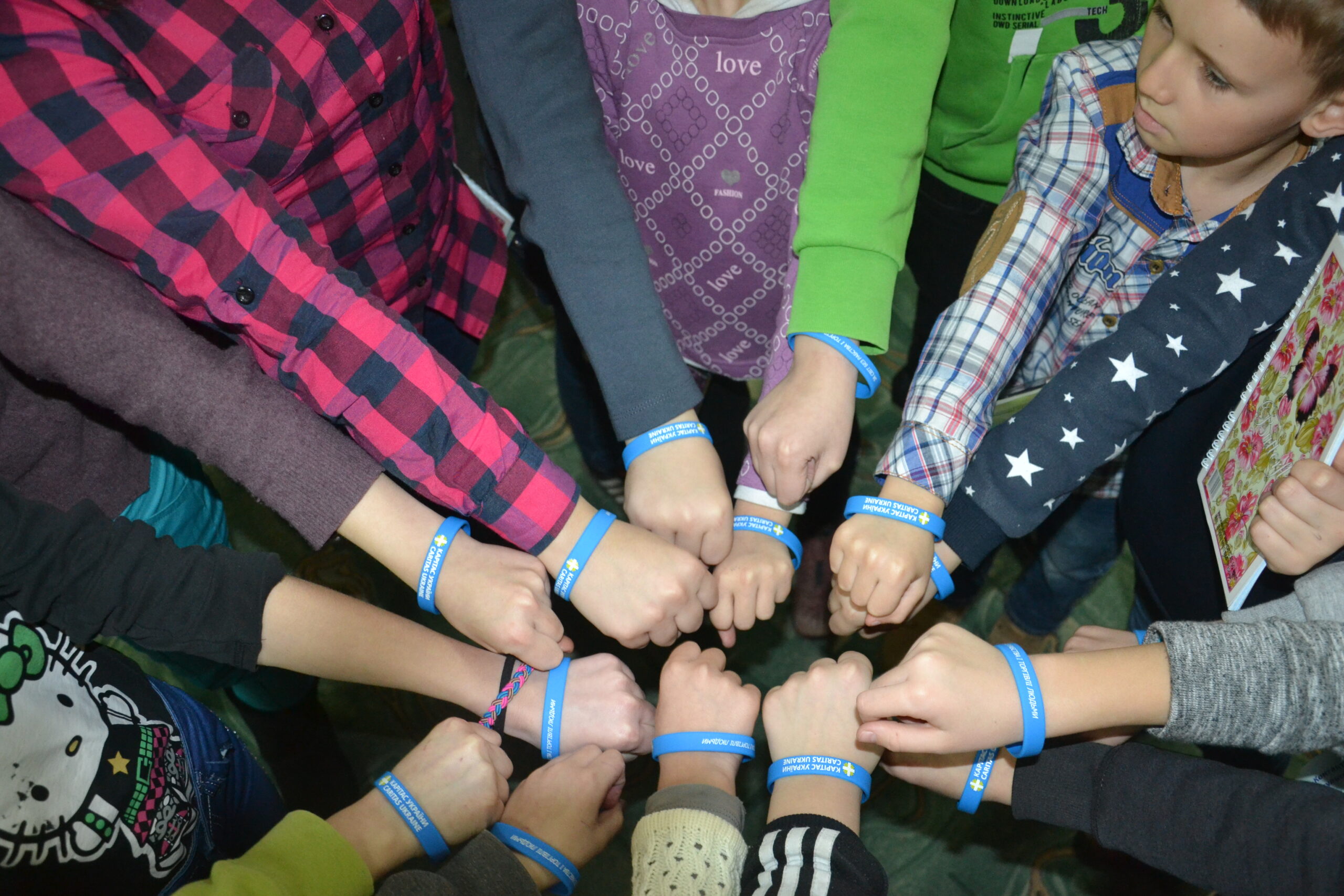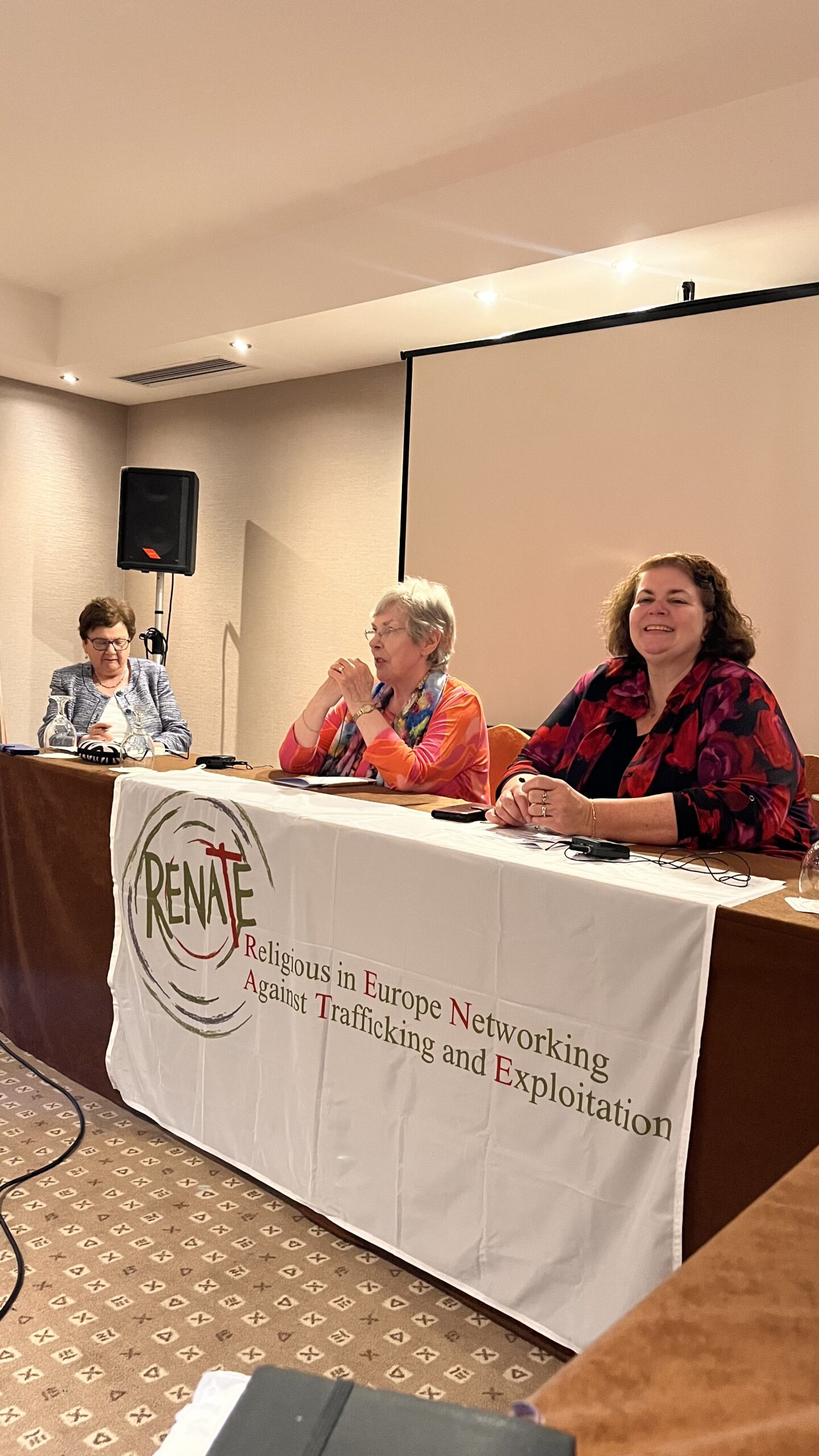On 5th March 2025, the Policy Evidence Centre (PEC) hosted a significant conference on modern slavery, marking the 10th anniversary of the Modern Slavery Act (March 24, 2015). The event, attended by leading experts, policymakers, and survivors, aimed to reflect on progress, address ongoing challenges, and propose future strategies to combat modern slavery. Among the attendees was Sr. Imelda Poole (IBVM), who represented RENATE and highlighted the organization’s commitment to fighting human trafficking and exploitation.
Conference Objectives
The primary focus of the conference was to foster collaboration and generate new momentum in the fight against modern slavery. Despite legislative advancements, the crime has quadrupled over the past decade, with a staggering 44% increase in child trafficking. Yet, prosecutions remain disappointingly low, raising concerns that current approaches are failing. The UK government has also made substantial cuts to foreign aid and is pushing to withdraw from European human rights laws, despite its commitment to international human rights and anti-slavery efforts.
Key Discussions
- Policy and Legislative Challenges
The Modern Slavery Act, now a decade old, is widely regarded as outdated and in need of urgent revision. Survivors often find themselves unprotected by the law, particularly when they are migrants. There is an urgent need for a victim-centered human rights approach. Industry accountability remains weak, with businesses often escaping scrutiny under the toothless Clause 54 of the Act. The Independent Anti-Slavery Commissioner emphasized the need for a strategic vision to drive policy reforms and ensure measurable, enforceable implementation. - The Role of Survivors in Policy and Advocacy
Jane Hasonder, Chair of Hope for Justice and a survivor herself, emphasized the necessity of survivor dignity and employment in anti-slavery initiatives. Survivors must be seen as more than just ‘walking stories on legs’—they should be remunerated and given positions where they can shape policy and strategy. The conference also explored structured career pathways for survivors, advocating for systemic change rather than temporary advisory roles. Ethical survivor engagement must prioritize trust, safety, empowerment, and systemic justice. - Business Responsibility and Supply Chains
Businesses must take an active role in preventing forced labor and modern slavery in supply chains.
EU legislation on supply chain responsibility has been delayed, with Section 54 of the Modern Slavery Act serving only as a reporting requirement rather than an enforcement mechanism.
There is a pressing need for stronger due diligence requirements and greater transparency. - Government Action and Future Steps
Jess Philips, representing the UK Home Office, acknowledged past leadership in anti-slavery efforts but stressed the need for modernized, concrete reforms. The government’s proposed Modern Slavery Reform Plan will focus on:
Strengthening prevention measures, particularly in corporate supply chains.
Reducing the backlog of victims awaiting care and reforming the identification process.
Enhancing victim support, with tailored care for children and adults.
Improving criminal justice outcomes by increasing prosecutions and holding perpetrators accountable. - The Survivor Panel: Lived Experience in Policy Making
The panel featured survivors who have become advocates and professionals working against modern slavery. Key takeaways included: Survivors should not be commodified for their stories but instead empowered to contribute meaningfully to systemic change. Trauma-informed training must be a priority in survivor engagement. Long-term structural and career opportunities must be developed to support survivors beyond advisory roles.
Final Remarks and Call to Action
Eleanor Lyons, the current Anti-Slavery Commissioner, stressed the importance of reclaiming leadership in the fight against modern slavery. She called for a cross-departmental strategy informed by survivors, with law enforcement and the commercial sector taking an active role.
To move forward effectively, the UK must:
Establish a Survivor Advisory Council.
Develop and implement a cross-government strategy.
Work closely with research institutions like the Rights Lab at Nottingham University.
Focus on prevention, prosecution, and protection as core pillars.
Read more here.
The conference underscored the urgent need for reform, survivor inclusion, and stronger legal mechanisms to combat modern slavery. Sr. Imelda Poole’s presence reaffirmed RENATE’s dedication to advocating for these critical changes and ensuring that the voices of survivors are central to policy development. Moving forward, a collaborative, survivor-informed, and enforceable approach will be essential in making meaningful progress against modern slavery.

.png)












